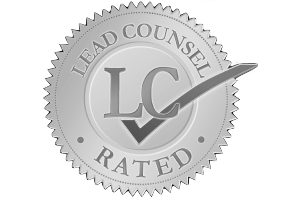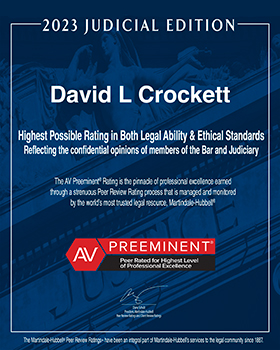Preservation Solutions
Trustee’s Duty to Notify on Death & When Change of Trustee
THE RIGHT TO BE INFORMED OF EVENTS. Because trusts are not filed or recorded with any government agency, laws have been established to make sure that heirs and trust beneficiaries have some way to find out about a trust and its assets. The parties involved in a trust are typically the Trustors who set up the trust, the Trustees who administer the trust and the Beneficiaries who are the persons who are to receive assets and income from the trust. While the Trustors are alive, the trust is typically revocable and changeable so the law does not give the Beneficiaries any rights to see the trust or its provisions while a trust is revocable or changeable.
WHEN A LEGAL NOTICE IS REQUIRED. Upon the death of a Trustor, a trust typically becomes irrevocable (i.e. it cannot be changed) and at that point there is a change of Trustee. The Trust document typically names a Successor Trustee, who is the person responsible for administering the Trust at that point. The Successor Trustee then must within 60 days of (i) when the trust becomes irrevocable or (ii) when there is a change of trustee of an irrevocable trust, send out a legal notice giving specific information.
INFORMATION REQUIRED IN NOTICE. The information to be provided is:
- The identity of the Trustors and date of trust creation;
- The name, mailing address and telephone number of each Trustee;
- The address of the principal place of administration of the trust;
- Other information if required by the terms of the trust
- A notification that the recipient is entitled to receive a true and complete copy of the terms of the trust if the recipient requests it;
- A warning that there is a 120 day time limit from the date of the notification or a 60 day limit from the date of actual notification to bring legal action contesting the terms of the trust.
WHO THE NOTICE IS TO BE SENT TO. The notification must be sent to (i) each trust beneficiary; (ii) each heir of a deceased Trustor; and (iii) the California Attorney General if the trust is a charitable trust. Some people are under the wrong impression that you only have to notify people who are named trust beneficiaries. That is simply not that case. The law recognizes that people who are heirs at law (i.e. various relatives such as surviving spouses, parents, brothers and sisters, children and grandchildren) may have a legitimate need to be aware of the Trust and what it says. One key reason might be where a trust improperly cuts out and omits to name a child of a Trustor a beneficiary. I have seen many situations where a Trust is created or amended to cut out and eliminate certain of the Trustor’s children and the children live out of the area and are not even aware of the Trustor’s death. If the law didn’t require a notification to them they would never know what was going on and would not have a chance to assert claims which they might have. I have had various cases involving this scenario: Trust starts out as benefitting the Trustor’s children 50/50. Then one child moves out of the area and the other child moves in with the Trustor and becomes closer. Then, the child who moves in with the Trustor gets a lawyer to draw up a trust amendment to change the trust to benefit only the child who has moved in. The other child is then left out and unless the law required a legal notice of the Trustor’s death the other child would have no way of finding out what the situation is.
TECHNICAL REQUIREMENTS OF THE NOTIFICATION-LEGAL COUNSEL RECOMMENDED . If the notice is not ever sent, the limit for interested parties to file court petitions or lawsuits remains open. For example, I have seen cases where after somebody has been deceased for 10 years and no notice was ever sent. That allowd that trust beneficiaries file lawsuits complaining about the trust being somehow improper or being the product of undue influence or fraud. This then becomes an expensive litigation nightmare because of missing and lost records and deceased witnesses. So, sending the notice is essential to flush out any complaints about the trust and get the trust in a position where the trust assets can be distributed without somebody filing a lawsuit about it years later. Thus, having an estate lawyer involved in the preparation of the notice can save problems later on. Also, the estate lawyer is in a position to determine who the heirs are who must be notified. Further, the estate lawyer would be in the best position to use methods to send the notice out and be able to prove delivery. I have seen cases where successor Trustees send out the notices but do not have proof that the notice was ever sent and then they end up on a lawsuit trying to prove the notice was sent and delivered. Where there is likely to be unhappy beneficiaries or family members due to being cut out of the trust, the delivery of the notification is critical to flush out claims and litigation.
REMEDIES FOR FAILURE TO FOLLOW THESE LAWS: People who are left out typically hire an estate attorney to write a letter to the successor trustee asking for the notice required and for a copy of the trust documents. If that doesn’t produced results, then the next step is to file a probate court petition (lawsuit) to compel the trustee to follow these laws and provide information. Failure by a Trustee to provide information and terms of a trust may be grounds to have the Trustee removed depending upon the circumstances.
THE LAW. HERE ARE THE PROBATE CODE SECTIONS APPLICABLE.
Cal Prob Code § 16061.7. Trustee’s duty to serve notification of changes; Contents; Damages
- A trustee shall serve a notification by the trustee as described in this section in the following events:
- When a revocable trust or any portion thereof becomes irrevocable because of the death of one or more of the settlors of the trust, or because, by the express terms of the trust, the trust becomes irrevocable within one year of the death of a settlor because of a contingency related to the death of one or more of the settlors of the trust. Whenever there is a change of trustee of an irrevocable trust. Whenever a power of appointment retained by a settlor is effective or lapses upon death of the settlor with respect to an inter vivos trust which was, or was purported to be, irrevocable upon its creation. This paragraph shall not apply to a charitable remainder trust. For purposes of this paragraph, “charitable remainder trust” means a charitable remainder annuity trust or charitable remainder unitrust as defined in Section 664(d) of the Internal Revenue Code. The duty to serve the notification by the trustee pursuant to this subdivision is the duty of the continuing or successor trustee, and any one cotrustee may serve the notification. The notification by the trustee required by subdivision (a) shall be served on each of the following:
- Each beneficiary of the irrevocable trust or irrevocable portion of the trust, subject to the limitations of Section 15804. Each heir of the deceased settlor, if the event that requires notification is the death of a settlor or irrevocability within one year of the death of the settlor of the trust by the express terms of the trust because of a contingency related to the death of a settlor. If the trust is a charitable trust subject to the supervision of the Attorney General, to the Attorney General. A trustee shall, for purposes of this section, rely upon any final judicial determination of heirship, known to the trustee, but the trustee shall have discretion to make a good faith determination by any reasonable means of the heirs of a deceased settlor in the absence of a final judicial determination of heirship known to the trustee. The trustee need not provide a copy of the notification by trustee to any beneficiary or heir (1) known to the trustee but who cannot be located by the trustee after reasonable diligence or (2) unknown to the trustee. The notification by trustee shall be served by mail to the last known address, pursuant to Section 1215, or by personal delivery. The notification by trustee shall be served not later than 60 days following the occurrence of the event requiring service of the notification by trustee, or 60 days after the trustee became aware of the existence of a person entitled to receive notification by trustee, if that person was not known to the trustee on the occurrence of the event requiring service of the notification. If there is a vacancy in the office of the trustee on the date of the occurrence of the event requiring service of the notification by trustee, or if that event causes a vacancy, then the 60-day period for service of the notification by trustee commences on the date the new trustee commences to serve as trustee. The notification by trustee shall contain the following information:
- The identity of the settlor or settlors of the trust and the date of execution of the trust instrument. The name, mailing address and telephone number of each trustee of the trust. The address of the physical location where the principal place of administration of the trust is located, pursuant to Section 17002. Any additional information that may be expressly required by the terms of the trust instrument. A notification that the recipient is entitled, upon reasonable request to the trustee, to receive from the trustee a true and complete copy of the terms of the trust. If the notification by the trustee is served because a revocable trust or any portion of it has become irrevocable because of the death of one or more settlors of the trust, or because, by the express terms of the trust, the trust becomes irrevocable within one year of the death of a settlor because of a contingency related to the death of one or more of the settlors of the trust, the notification by the trustee shall also include a warning, set out in a separate paragraph in not less than 10-point boldface type, or a reasonable equivalent thereof, that states as follows: “You may not bring an action to contest the trust more than 120 days from the date this notification by the trustee is served upon you or 60 days from the date on which a copy of the terms of the trust is mailed or personally delivered to you during that 120-day period, whichever is later.” Any waiver by a settlor of the requirement of serving the notification by trustee required by this section is against public policy and shall be void. A trustee may serve a notification by trustee in the form required by this section on any person in addition to those on whom the notification by trustee is required to be served. A trustee is not liable to any person for serving or for not serving the notice on any person in addition to those on whom the notice is required to be served. A trustee is not required to serve a notification by trustee if the event that otherwise requires service of the notification by trustee occurs before January 1, 1998.
Cal Prob Code § 16069. Exceptions to duty to account, provide terms of the trust or requested information The trustee is not required to account to the beneficiary, provide the terms of the trust to a beneficiary, or provide requested information to the beneficiary pursuant to Section 16061, in any of the following circumstances: (a) In the case of a beneficiary of a revocable trust, as provided in Section 15800, for the period when the trust may be revoked. (b) If the beneficiary and the trustee are the same person.
Read David Crockett’s Detailed Blog Posts:
Click Here for Posts Regarding TRUST & PROBATE ADMINISTRATION








